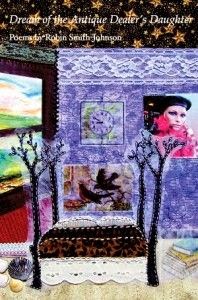The other day I was rummaging through a bureau
drawer in my bedroom and found an envelope addressed to Robin Smith-Johnson, Poet. It was
from my dad. The sight of that envelope almost moved me to tears because today
(Nov. 27) marks the two-year anniversary of his death at eighty-eight years
old. Wendell Everett Smith was always my
biggest supporter, especially when it came to writing. He was a critical
reader, but a fair one of my many manuscripts. He and my mom also came to my poetry
readings even when the weather was nasty or they were tired from doing an
antique show.
My dad was known for his funny bone and tall
tales. He was a writer of short pieces he called “Wendell’s briefs.” I loved
the scope of his vision from writing about black labs in the cabs of Cape
pick-up trucks to moving prose about the beauty and nature of Cape Cod. He
loved Nickerson State Park in Brewster, MA and my family’s tradition was to
celebrate his birthday there every June. He loved the written word and, of
course, books.
Recently
I asked my mother about the evolution of her antique business to one that included
books. She laughed. “Well, first your Dad sneaked in one shelf of books. Little
by little, those shelves multiplied until we had to say we were sellers of
antiques and books.” When I was growing up, there were always books to read. On
a Saturday afternoon, I would climb to the second floor of “The Incredible Barn”
(on Main St. in Orleans, MA) where the books were kept and find something good
to read. Paired with a juicy apple, this was my idea of heaven.
In a few weeks, I’ll finally have
a copy of my first book of poems. It’s called “Dream of the Antique Dealer’s
Daughter.” I wish my dad could have been here to read my poems and share the
thrill of holding my book in his hands. If I could speak to him again, I would
thank him for giving me a love for words.
A quote by Umberto Eco seems tailor-made for my father: “I believe that what we become depends on what our fathers teach us at
odd moments, when they aren't trying to teach us. We are formed by
little scraps of wisdom.”

